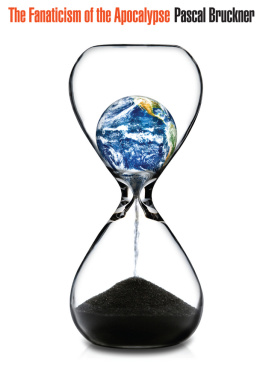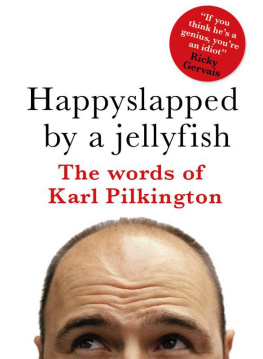This edition is published by PICKLE PARTNERS PUBLISHINGwww.pp-publishing.com
To join our mailing list for new titles or for issues with our bookspicklepublishing@gmail.com
Or on Facebook
Text originally published in 1962 under the same title.
Pickle Partners Publishing 2016, all rights reserved. No part of this publication may be reproduced, stored in a retrieval system or transmitted by any means, electrical, mechanical or otherwise without the written permission of the copyright holder.
Publishers Note
Although in most cases we have retained the Authors original spelling and grammar to authentically reproduce the work of the Author and the original intent of such material, some additional notes and clarifications have been added for the modern readers benefit.
We have also made every effort to include all maps and illustrations of the original edition the limitations of formatting do not allow of including larger maps, we will upload as many of these maps as possible.
THE DAY OF THE BOMB
BY
KARL BRUCKNER
Translated by Frances Lobb
INTRODUCTION
THE DAY OF THE BOMB was a day which was to change the lives of all mankind, not just of Sadako.
Sadako is a little girl who lives with her parents and elder brother in wartime Hiroshima. She is a thin little girl because she doesnt get enough to eat, but she has a chubby face because she is still very young.
On August 6 th , 1945, Sadako and her brother go to join the queue for food outside the Ministry. But Sadako is too weak to wait for their ration and her brother decides to carry her home. On the way he stops to bathe while Sadako sleeps on the lakeside.
Just as he dives into the lake the atom-bomb explodes over the town.
Sadako and her family survive the dropping of the bomb and the subsequent rigours of life in a post-war worldthe black market, the shortages, the bitter competition. The pleasures and the tragedy of life in Japan at this time are seen here through the eyes of the young girl who wins local fame for her prowess in a bicycle relay race, only to find that even she cannot cycle fast enough to-escape from the events of the past.
Her storyand through it the story of mankindis told with the vivid detail of a colour, film and the sensitivity of a human documentary. It is an account without bitterness and without horror of an event which changed the course of history.
CHAPTER ONE
ON the morning of July 20 th , 1945, the following events took place.
From the air above the shimmering Inland Sea came a faint droning. A Japanese observer on the coast of the island of Shikoku signalled to Defence Headquarters for Southern Japan, stationed at the ancient castle in Hiroshima: Enemy bomber approaching.
Some minutes later a second signal followed it. Enemy bomber identified as reconnaissance plane.
Defence Headquarters sounded no air raid warning for the town, so as not to interrupt work in the armament factories unnecessarily. Enemy planes had flown over Hiroshima several times lately without dropping bombs.
* * * * *
On the banks of one of the six branches of the River Ota, the crippled boat-builder, Kenji Nishioka, was fishing, seated on a stone projecting from the muddy bank. Kenji let the water ripple round his naked feet. Its coolness eased the burning in his swollen ankles. Last night the pain had been worse than ever. He looked thoughtfully at his ailing limbs. Was it the heat of summer that made his ankles swell? Or was it, as the old woman who lived next door to him maintained, that all evils were due to the war? There might be something in what old Kumakichi said. It was certainly due to the war that for the past few months he, Kenji, had only been getting as much rice every third day as he had formerly eaten in one. The local government officials probably thought of all old people as useless mouths, because they gave them so very little food. Younger people didnt respect their elders anymore. Yes, indeed, war corrupted morals. If it didnt end soon, old people would starve.
Gloomily Kenji hauled in his line and stuck a fresh bait on his hook. He had been sitting here since early morning without a nibble. If he had still owned his good boat he could have gone out on the water to fish. But this boat had been commandeered for the Navy in the very first year of the war. So had all the ships timber that he had accumulated in the course of the years when he was still building heavy fishing smacks as well as light pleasure craft.
From some indefinable direction came a droning. The noise increased, faded, and increased again.
Kenji Nishioka looked skywards, blinking. The sun dazzled him. The slit eyes in his round full moon of a face now looked mere streaks painted in with Indian ink. He attempted to discover the source of the noise. Now he tilted his head so far back that his flat straw hat slid off his bald head and fell in the mud. This hat had formerly served as headgear to a rickshaw coolie, who, on being called up, had left it with his creditor, Nishioka, as a pledge for some small loan. At that time the hat had been nearly new. Now it was tattered and shapeless. All the same, it was Kenjis favourite headgear, and he therefore carefully wiped off the mud which clung to it. He was so busily engaged in doing this that he forgot what he had previously been looking for in the sky. As an approaching drone reminded him of it again, the noise was drowned by the sudden pounding of one of the many guns from the Mitsubishi shipyard on the opposite bank. A dirty grey puff of smoke shot up into the air. Kenji Nishioka ceased to worry about the droning in the sky.
* * * * *
Along the embankment marched a company of soldiers, singing. Only one, the last on the left, raised his eyes heavenwards. He saw an aeroplane high over the water. To him it looked a mere speck. An enemy bomber, said the soldier to his neighbour, gesturing furtively in the appropriate direction. His comrade gave the aeroplane a fleeting glance. Then he whistled through his teeth to show how remote he reckoned the danger to be.
The young officer leading the company to the barracks square turned round unexpectedly. Sternly he ran his eyes over the ranks of the soldiers. None of them, as far as he could see, was looking in the direction of the bomber. That was a good thing. A soldier should despise danger. Even that old man down there on the river bank was peacefully wiping his hat clean rather than honouring the bomber in the sky with any attention. The old man was setting a good example.
* * * * *
By the side of the road, ten-year-old Shigeo Sasaki tried to keep step with the marching soldiers. This was not easy, for Shigeo was walking on stilts. Two feet above ground-level, he was balancing himself on foot-rests screwed into poles taller than a mans height. Shigeo too heard the drone of an engine in the sky, but he did not spare the time to look up. He was more interested in trying to impress the soldiers. Behind him trotted his four-year-old sister, Sadako. She was crying because she could not keep up with her big brother. At last the chubby-faced child stood still and began to scream shrilly, stamping her feet on the ground. Her tiny, high-heeled wooden clogs rattled on the pavement like a burst of kettledrums. She held out her arms in front of her as if she would have liked to pull Shigeo off his stilts. The latter plodded calmly on, smiling at the soldiers in the hope of attracting admiration, until he stumbled and had to jump down. Some of the soldiers grinned then, amused. Shigeo pretended that he had only jumped down for his sisters sake, and he ran back. Putting his arms round the little girl, he lifted her up and spun round with her in a circle, to pacify her. But she was not to be consoled. Shigeo grew angry. He pointed to the aeroplane in the sky. Do you see that big bumble-bee up there? It will come right down and sting you if you are not quiet.












